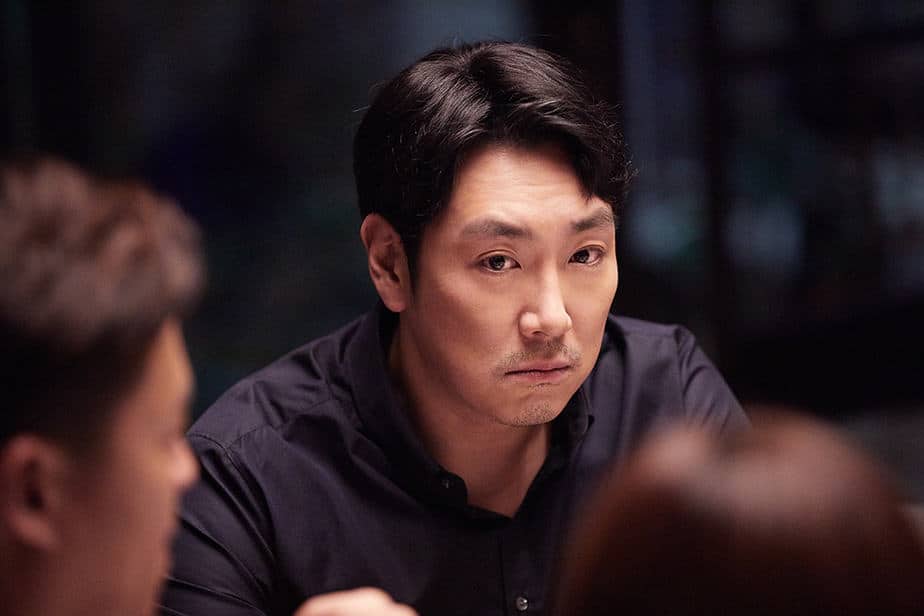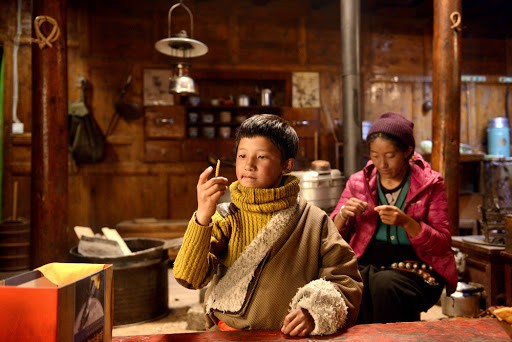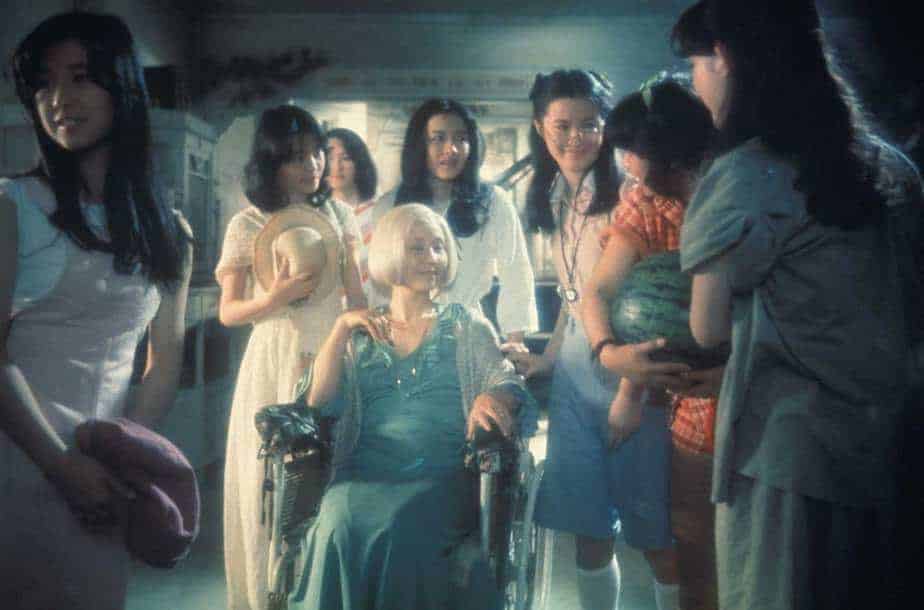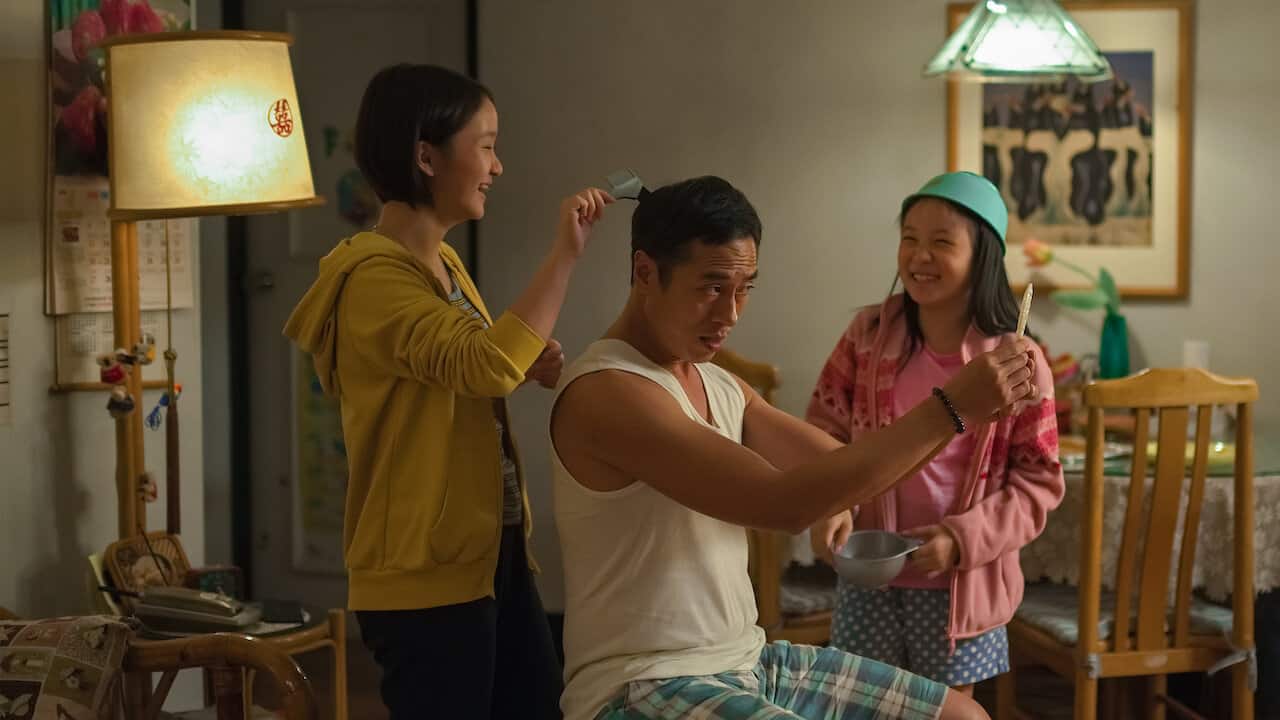“Everyone lives three lives: a public life, a private life, and a secret life.” Appearing in the film's closing sequence, it is this quote which perfectly captures the theme of “Intimate Strangers”. Glimpsing into the confidential areas of the lives of seven long-time friends, Lee Gae-yu's dramatic comedy remake of the 2016 Italian release “Perfect Strangers” explores the off-limit portions of ordinary people's persona, and subtly ponders upon the status we in society give our smartphones. Shortly set for a brief stint on the festival circuit, this momentum-building scrutiny on whether honesty can definitively remain the best policy is undoubtedly worth one's attention.
“Intimate Strangers” is screening at Florence Korea Film Fest 2020

After a long-winded introduction to each character, their surface-level personalities, and a flashback to when the four men in the story watched a lunar eclipse 34 years ago, the movie begins its overriding narrative at the housewarming party of plastic surgeon Seok-ho (Cho Jin-woong) and his brazen wife, psychiatrist Ye-jin (Kim Jee-soo). Firstly joined by the couple consisting of the socially conservative Tae-su (Yoo Hae-jin) and poetry lover Su-hyeon (Yeom Jung-ah) before the arrival of the former playboy Jun-mo (Lee Seo-jin) and his much younger wife Se-Kyung (Song Ha-yoon), the gathering begins mundanely, consisting of languid banter and juvenile gossip. Joined in short time by Young-bae (Yoon Gyung-ho), who disappoints the crowd in turning up without his new girlfriend (the excuse cited as an illness), the long-time friends are now fully reunited, ready to savour another lunar eclipse together.
However, in the meantime, there is a twist. After some fleeting pre-meal hearsay and light-hearted pleasantries, a significant proposition is put forward. Discussing what each man and woman are secretive about in regard to mobile phone usage, Ye-jin suggests that they all play a game; everyone puts their mobile phones on the table, and each call is answered on speaker, whilst every alarm, email or text is read aloud. Yet, despite their confidence that nothing is prohibited from their significant others, the group are reluctant to participate. However, even if mostly out of guilt that suspicions of extracurricular activity would be abruptly aroused, there is an agreement made amongst the party, so the game commences. At first, all goes smoothly. Despite an agitating prank from Seok-ho in which he tells Jun-mo via a hidden text that he “misses his body,” the only notable activity is a brief speaker-phone chat with Young-bae's father.
In due time, though, things heat up. Following on from a phone call Su-hyeon receives from her mother which reveals her honestly held opinions of the hosts, tension rises. Waiting with bated breath for every notification bell or vibration, the friends now stiffly sit. From here, there are revelations of adulterous escapades, outings of sexualities and cringeworthy false allegations flung, all whilst undertones of palpable tension are omnipresent. Soon, Ye-jin debates whether the ordeal was worth it in the first place, but what exactly does everyone find out about those they believe to know so thoroughly?
Contriving such a convoluted plot which exclusively takes place in compact, pocketed locations (specifically an open-plan dining area) within a house is a risky move, but director Lee Jae-gyu ensures his gamble works with a soaring approach to the tangible tension which comes with inescapable confinement. For example, each person is always at risk that their device can be snatched away by another, their privacy suddenly being exposed without notice. Likewise, as pride and ego is involved, nobody wishes to quit the game, which makes the dramatic utterances all the more amplified; there's no comfort blanket or place to run, the characters are forced to face each problem head-on, without privacy.
Thus, one can conclude that the principle narrative concept does succeed. Centred around the doubt, insecurity and even infidelity that a person can hide within the confines of a smartphone, it is somewhat shocking to discover what is really kept locked away within the lives of these seemingly ordinary members of society, but yet forces the viewer to reflect on how they live their lives too. Supplemented by a phenomenal cast, the disclosures into the tight-lipped sectors of each person is made even more dramatic. Most notably, through Kim Je-soo as Ye-jin. Based on first impressions, she is the most stable part of the ensemble. Sure, she may have her problems with her young daughter who she finds carrying condoms, but with a stable job as a psychiatrist and a loving husband, it could be said that she cannot exactly complain. Nevertheless, Ye-jin is on the edge, a woman who has insecurely staggered into getting plastic surgery, fails to be notified about her husband's ongoing therapy, and is far from faithful herself. Consequently, Kim Je-soo allows herself to craft a performance full of nuances, with the subtlety of her facial expressions telling different stories to what the comfortable line deliveries suggest, and the desperation in her solemn tittle-tattle a clear emphasis on her own morbid experience of insecurity.
Accordingly, some of this praise for the perceptible insinuations throughout the 116-minute runtime must go to the cinematographer, Kim Sung-an. Emphatically drawing out each drop of tension by steadily zooming into everything from discerning looks to caller IDs, the scenes have a claustrophobic aura to them. Forcing the viewer to feel as stuffy and uncomfortable as those partaking in the disseminating contest, he seamlessly captures the grounded emotion necessary to amplify the director's intention.
On the other hand, the closing portion of “Intimate Strangers” is so divisive that it can seemingly only be loved or loathed. Ordinarily, such a fake-out finale would allow for an unsettling open-ending, yet here it is part excusable, as it elicits legitimate reflection from the audience. On one hand, the rationalisation could be made that such an ending undoes two hours of concentrated development in each character, but the counterpoint to that would be a simple question. Was the point of the story to be able to observe growths in character? Or, did the film exist to comment broadly on just how much stock can be placed in a communications device most own in modern times? Regardless of your opinion, director Lee has undoubtedly contrived a thoughtful piece, even if a portion of its viewers will leave unsatisfied.
In conclusion, “Intimate Strangers” is at times unsettling, occasionally poignant, but consistently dramatic. Once the slow start is cast aside and the phones are set on the table, events burst into life. There might not be any fanfare, and some issues may exist purely superficially, but for a feature-length look at the harrowing side to the digital age, it competently fulfils its ambition.















